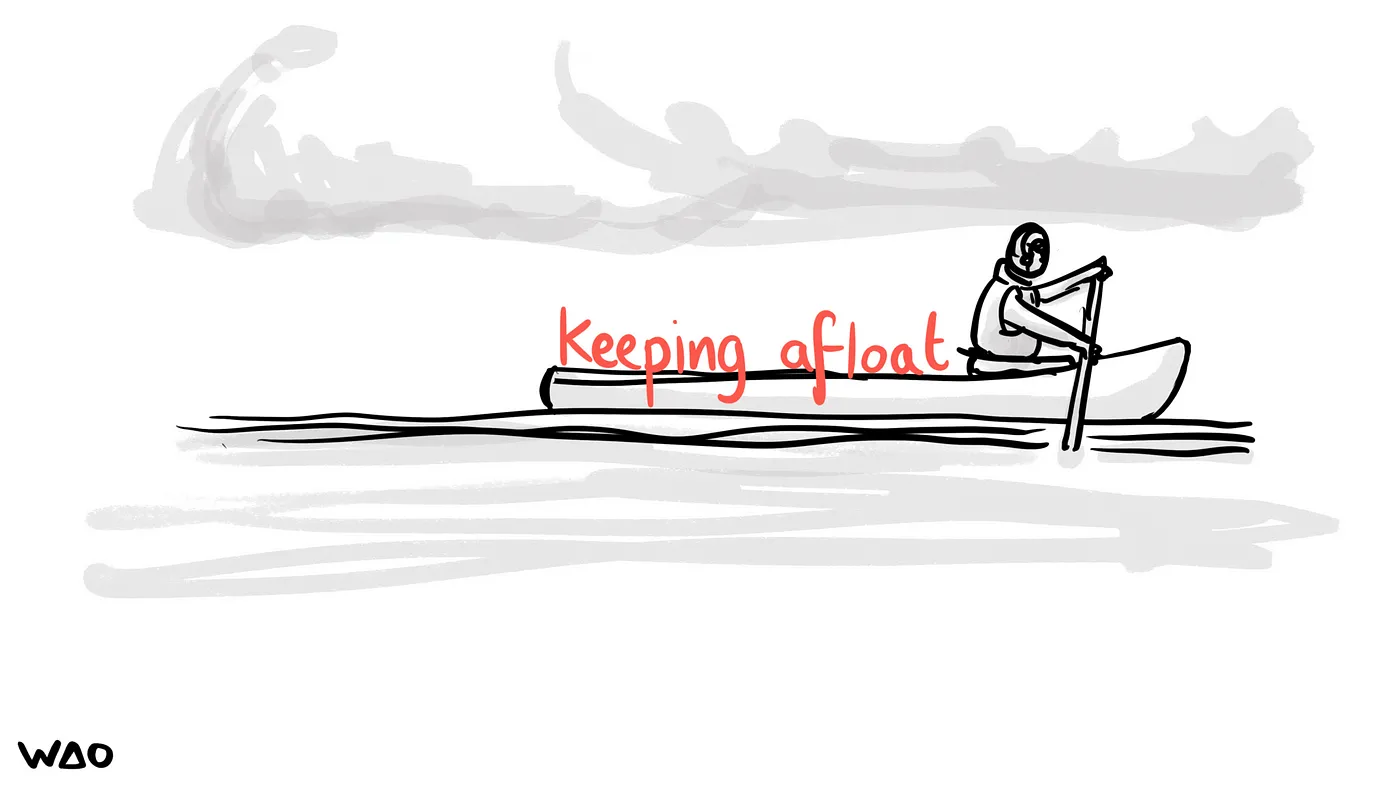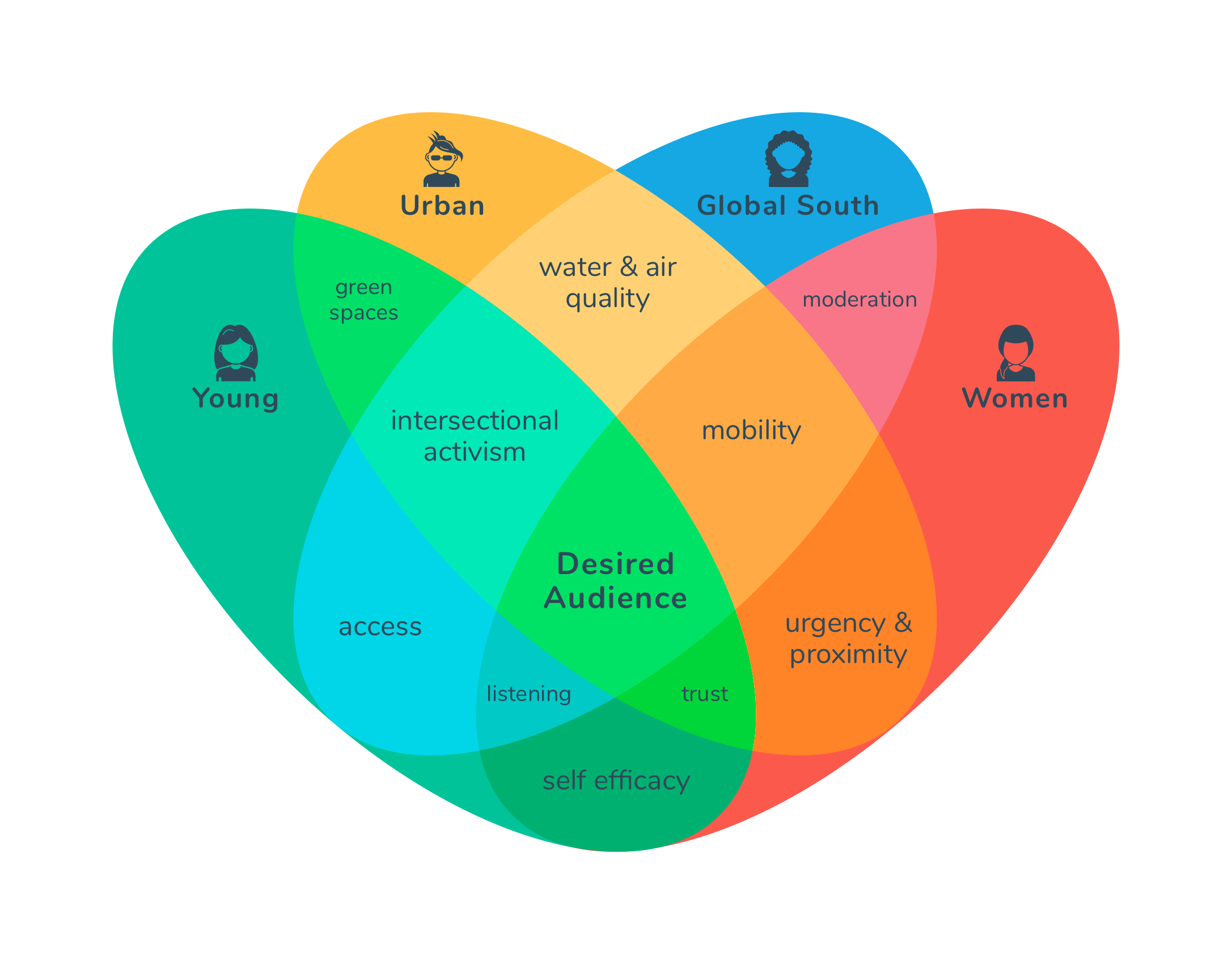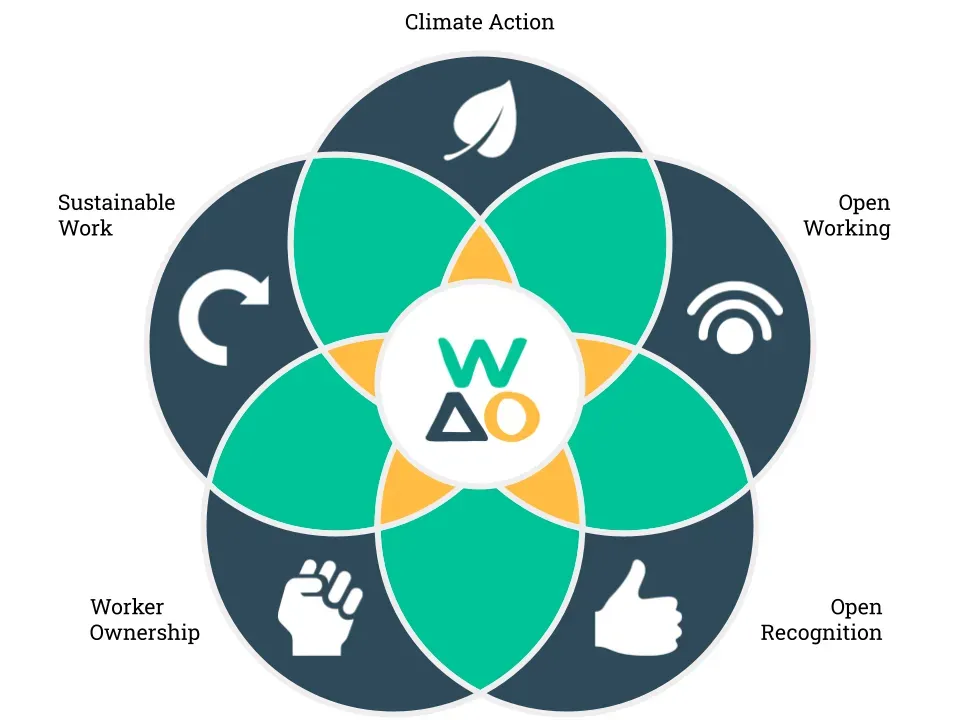Solidarity, common ground, and intersectionality in the climate movement
This post looks at ways we can channel our activist energy in ways that address multiple issues and find belonging in adjacent communities.
Recently at a week long event that brought together energy transition activists from around the Mediterranean, I was pleased to meet a variety of people with intersectional understandings of the climate crisis. Together, we explored what intersectionality looks like in the climate movement and how we can tell stories that lead to action.

Expanding our activist energies
Although many of us care about a variety of struggles, we don’t have the time or the energy to get involved in every single thing. We focus our energies, we have to. The problem, of course, is that each issue and cause needs the visibility a group of activists coming together can provide. So how can we focus ourselves and find energy to do more?
For just a couple hours last week, I worked with a small group of rabble rousers to create campaign ideas for the challenge:
The intersection and complexities of our structural problems makes people feel powerless.
The structural problems we are facing are complex and co-exist within a matrix of other challenges. We are dealing with environmental crisis, racist societies, and social inequalities left, right, and centre. No matter how positive your personality may be, it’s hard to stay optimistic. No matter how cognisant you are about other struggles, it’s hard to pay attention to everything.
When we are overwhelmed and feeling powerless, we tend to recede. Our group had the insight that feeling overwhelmed or powerless is lonely. Loneliness is a cascading psychological phenomena that halts action and feeds despair.
We started to think about how we might address loneliness in activist movements by telling stories that help people who feel like they belong to one group (e.g. environmentalists) to understand their connection to other groups.
Our theory of change is that finding belonging amongst your activist friends can provide you with solidarity and a source of energy. We wanted to push for intersectionality in the climate movement.

Choose three: intersectionality in practice
Everybody cares about something, whether that be sports, the environment, or even status. If you can identify one thing you care about, you can surely identify three others. Using arbitrary design constraints, like “choosing three” is a good way to move any idea forward, including ideas around your own activism or civic participation.
We know that climate change disproportionately affects already marginalised communities, which can exacerbate existing social inequalities. With this in mind, we choose to look at the intersectionality of climate with three human rights issues:
- Refugee and migrant justice
- Women’s rights
- LGBTQIA+ rights
Easy, right? Choosing three issues to put your energy into is a lot less than “everything”. Three is also enough to give variability and provide access to different communities. Different communities come with different energies and that is something you can tap into when needed.

Find connections and leverage points
Intersectionality is about understanding the points of interconnection between two issues. Seeing the overlaps means that you can connect issues together in new and novel ways. Novelty is just one storytelling tactic in calling attention to a particular issue. Once you’ve determined places to focus, you can further narrow your focus by looking for leverage points that lead to connection.
- Refugee and migrant justice — From climate-induced displacement to the fact that people who are forced to migrate whatever the reasons can face challenges in accessing their basic rights, refugee and migrant justice ties heavily to other environmental and human rights issues.
- Women’s rights — Women’s societal roles as caregivers and food producers make them more vulnerable to the effects of climate change. It’s now widely understood that educating girls is a catalyst towards climate action.
- LGBTQIA+ rights — Again, marginalised communities are disproportionately affected by the climate crisis. LGBTQIA+ are often members of other marginalised communities, such as racial minorities, and they are more likely to live in poverty.
Human rights and environmental justice are big and complex areas of focus. Thinking about how the complexities of these issues overlap can help narrow down the impact you want to have.

Have some fun
Yes, structural problems are serious and complicated. It is essential to be aware of both your own privileges (whatever they may be) and to think deeply about the issues and communities you are working with and within. It’s also important to know that joy is a common emotional human experience. Inciting joy is a way to truly help people. It can help build psychological characteristics that help people deal with whatever life has to throw at them. Joy can also open people up to a better tomorrow.
At the event I attended last week, as we thought about the intersectionality of environmentalism with human rights, we thought about how we might be able to inspire people to be joyfully curious to learning more about an issue they might not have much involvement with.
We developed a few posters, designed to be displayed on a metro, to inspire this curiosity.

Solidarity with others
The complexity of our global problems can be overwhelming, but we cannot solve one complex issue without tackling the intertwining structural issues. Finding ways to relate what you care about to what others care about is a way to build solidarity and, therefore, momentum. It’s not always easy, but the more you can participate in cross-cutting social and environmental communities, the bigger our collective power becomes.
I worked with inspiring people from these organisations:
- “La Casa dels Futurs is both an ongoing project dedicated to supporting intersectional organizing between social and ecological movements, and a campaign to create a permanent Climate Justice Center and Movement School…”
- “Rinascimento Green…aims to bring together various pieces of civil society to promote, through a path of popular participation, a bottom-up Green Deal.”
- “WeSmellGas is a collective of organisers, researchers and film-makers based in Northern Europe. Climate justice can only be realised by dismantling capitalism and the imperial processes that reinforce it, including our current extractivist energy system.”
🔥 Do you need help with storytelling and advocacy? Check out WAO’s free, email-based Feminism is for Everybody course, or get in touch!